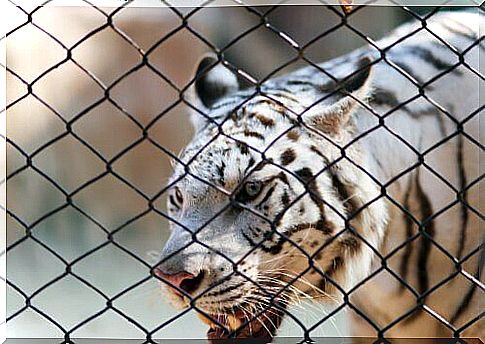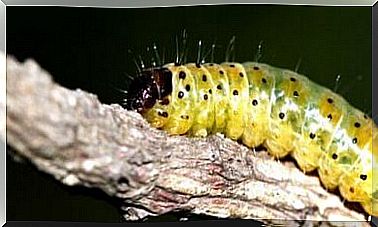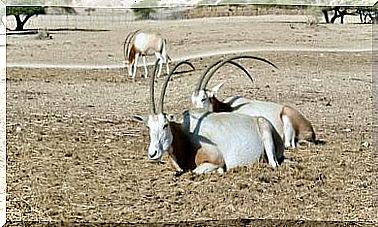Exotic Species In Europe: A Dangerous Fashion That Is Growing

Looking at the latest statistics, it turns out that exotic species in Europe are growing exponentially. Despite the warnings and recommendations of veterinarians and other professionals. In addition to illegal trafficking for the purchase and sale of ivory and skins, the Internet is favoring the market for these “unusual” pets.
The fashion of exotic species in Europe allows you to show off your economic power. Many are just trying to stand out, attracting the attention of friends, family and acquaintances. Often imitating the behavior of VIPs and famous people who are photographed in their homes next to tigers, snakes and other species.
The sale of exotic species on the Internet
The results of the latest report from the International Fund for Animal Welfare (IFAW), which analyzed the trade in exotic species and wildlife in Europe, are very interesting, carrying out an in-depth investigation online .
The report analyzed the trafficking of various protected species enshrined in the Convention on International Trade in Endangered Species ( CITES ), as well as trade in key countries such as Britain, France or Germany.
The conclusions are alarming: in the 6 weeks during which the study was conducted, there was the sale of 11,700 animals belonging to exotic species in danger of extinction, through over 5,000 ads, with profits of over 3 million euros.
What exotic species are bought?
Reptiles are the best-selling exotic species, especially turtles. After them, wild birds, especially parrots. Afterwards, ivory, unfortunately, still represents a thriving market in the Old Continent .

However, the trade in exotic species in Europe also involves much larger animals: elephants, big cats, bears, rhinos and monkeys are just some of the mammals that continue to be sold to wealthy European millionaires, obviously illegally.
The data is chilling, especially considering that 80% of sales are for live animals that no one knows what will happen to them. It must be emphasized that the percentage of dangerous animals in European homes is also increasing: there are far more tigers in private gardens than in zoos, for example.
It is particularly worrying that ads of exotic species for sale are starting to flood social networks, a place where it is much more difficult to study and control this phenomenon.
Why is selling exotic species a problem?
While many exotic species are perfectly legal as pets, many are not and continue to be sold over the internet in a non-transparent way.
On many occasions, when shopping for animals online , their origin is absolutely unknown and you could end up buying specimens that are the result of illegal trafficking. This is why we must always act with great caution.

This is why the purchase of exotic species should be carried out through the advice of professionals who, in addition to illustrating the complexity of the care of these animals, will help you understand if their keeping fits your lifestyle habits or not.
It must be remembered that many of these species are on the verge of extinction, and paying a lot of money only means encouraging and supporting the violence and the abuse of illegal trafficking in living beings.
Furthermore, the abandonment of these animals causes serious damage to local ecosystems, often causing the annihilation of native varieties. Therefore, it is vital to combat this phenomenon, which is increasingly worrying every day in Europe.
What exotic species are allowed?
Regardless of the laws and the control of the police, it must be said that this trafficking of animals always and in any case depends on the selfishness and presumption of man. No matter how many limits and rules there may be, if you have the money you will always be able to build a real zoo in your garden.
What is clear is that having a pet is a huge responsibility. In addition to respecting the laws, if you really want an exotic specimen, choose one that is easy to manage. Then, check where it comes from and take care of it for life.









